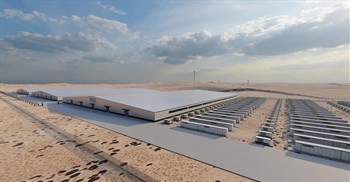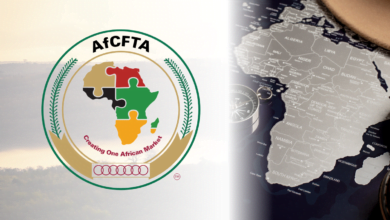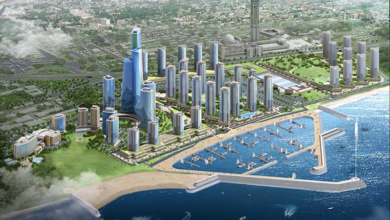The Association of large companies in Togo (AGET) brings together more than 52 leading companies from various sectors (food, industry, services, banking, insurance, hotels, transit and logistics, stevedoring,, etc.) with a net cumulative annual sales of about 691 billion FCFA in 2015 and more than 10,000 jobs to payrolls of 33 billion FCFA. In an interview with ANA, the president of the association, José Kwassi Symenouh decrypts the economic and business climate in Togo.
Interview
You recently launched a document entitled « White Paper » that you designate as the bible of business in Togo. What is really the need of this document and what is its content?
The White Paper of AGET can undoubtedly be considered as the bible of business in Togo. Remember that this new edition of the White Paper was conducted by a collective mission to which all the AGET’s heads of companies participated. In part, the book paints an overall view of the Togolese economy and reviews the various sectors and the handicaps and obstacles to business development. In its second part, it highlights the areas and sectors with high growth potential. In the third and fourth parts, the White Paper focuses on recommendations for improving the business climate and structural transformation of the Togolese economy and on concrete and urgent action to be taken by the state and the stakeholders in the economy to make Togo more attractive for investment.
You talk about structural reforms and improving the business climate. Do you think that Togo has the capabilities?
Of course ! Remember, a few years ago , Togo was regarded as the ‘Switzerland of Africa’ ‘. Togo has not changed and has considerable assets to become the thriving economy as desired. The indicators are there. The rankings ‘Doing Business 2016’ where Togo won 2 rows from the 152nd in 2015 to 150th in 2016 and ranking of » logistics Performance 2016 ‘prepared by the World Bank where Togo won 47 seats going to the 139th spot in 2014 at the 92nd place in front of ports such as Côte d’Ivoire and Senegal, for example. All these indicators allow us to believe that Togo is on track to position itself as the hub of the subregion. This is the challenge for the country.
On another level, the current government policy is bearing fruit. The efforts result in significant progress in several areas (port, airport infrastructure). Much remains to be done, including the establishment of an institutional framework conducive to the development of the Togolese companies.
As president of the AGET, member of the National Council of Employers (CNP) of Togo, member of the Consular Assembly of the Chamber of Commerce and Industry of Togo (CCIT), President of the Commission and the Business Climate and CEO of the NSIA Insurance Togo, do you really think that the conditions are now favorable for investing in Togo?
In 2015, Togo was on the list of the 10 economies that made the greatest progress in improving their business regulations. It shows that things are changing. And even if it does not move at the pace we want, it moves anyway. Efforts are still needed, but reforms carried out by public powers including the Centre for Business Formalities (CFE) for the creation of enterprises, the establishment of the Public Procurement Regulatory Authority (ARMP) to promote competition in the award of public procurement, the establishment of the arbitration Court of Togo (CATO) and modernization of justice to ensure the security of business and investment, the creation of the API-ZF, are measures set up to attract investors.
As we have suggested in the White Paper, added to what has been done, we must establish a business climate favorable to foreign direct investment (FDI). The condition for a foreign investor to invest is to have confidence in the country risk, market, competitive conditions, confidence in the justice of the country, confidence in land tenure and so on. But above all, and I repeat, it is necessary that the Togo authorities make operational the Agency for Investment Promotion and Free Zone (API-ZF) and ensure that the new Investment Code promulgated in 2013 is applied.
With all its provisions, do you think that in the coming years, the Togolese companies will face competition in the sub-region?
I would first like to emphasize the high quality of Togolese companies. We have great champions. To name a few: BP, Total, Shell, Sototoles, SGMT, CIMTOGO etc. This is also the case in the free zone where we have outstanding businesses. These companies face particularly at this moment, the issue of competitiveness. Indeed, several factors are to the detriment of Togolese companies:
The depreciation of the Naira and Cedi benefit the Nigerian and Ghanaian companies whose products are offered at very competitive prices in the sub-region;
The porosity of our borders, that promotes illegal entry of goods from neighboring countries; Products that do not meet standards and that are not subject to customs duties. This is initially a loss of tax revenue for the state and then causes a drop in corporate revenues which are hard subjected to unfair competition;
The high costs of inputs (energy, telecommunications) that are heavy loads and disabilities for certain businesses compared with some neighboring countries where exporters benefit from export subsidies.
Despite this, the Togolese companies have to do with serious unfair competition from the informal sector that imposes a tax surcharge harmful to competitiveness. Our businesses are competitive, but today we are in an exceptional situation that endangers our industry. We will work with the public authority to put in place effective controls at the borders of the country.
Today, the Togolese businesses struggle to conquer the sub-regional market. What do you do to rectify this situation?
The competitive market in the sub-region is tough. And as I said earlier, we have well equipped champions who have made the necessary investments to be competitive. But the difficulty is that the rules are not the same for everyone. This is obviously why the AGET made the defense of the competitiveness and productivity of Togolese businesses its priority.
We work with the government that must constantly make choices between, on the one hand the country needs to have particular tax revenues, and on the other hand a too high tax burden that is very harmful to competitiveness.
What are the prospects of AGET to strengthen the flight of Togo’s economy?
The AGET reiterated, through me, the will of its members to be one of the country’s economic development engine. This requires trust, a concerted economic legal and tax policy, and adapted to the environment, and the availability of infrastructure and quality of administrative services. The AGET advocates the establishment in Togo of a public-private dialogue as well as centers of excellence in service and competitiveness clusters in the field of industry. It is for this purpose that the association included in its priorities the protection of the existing industrial base, developing new technologies and active participation in all initiatives aiming at improving the country’s human resources with skilled workforce and proven expertise.
By Emmanuel Atcha





